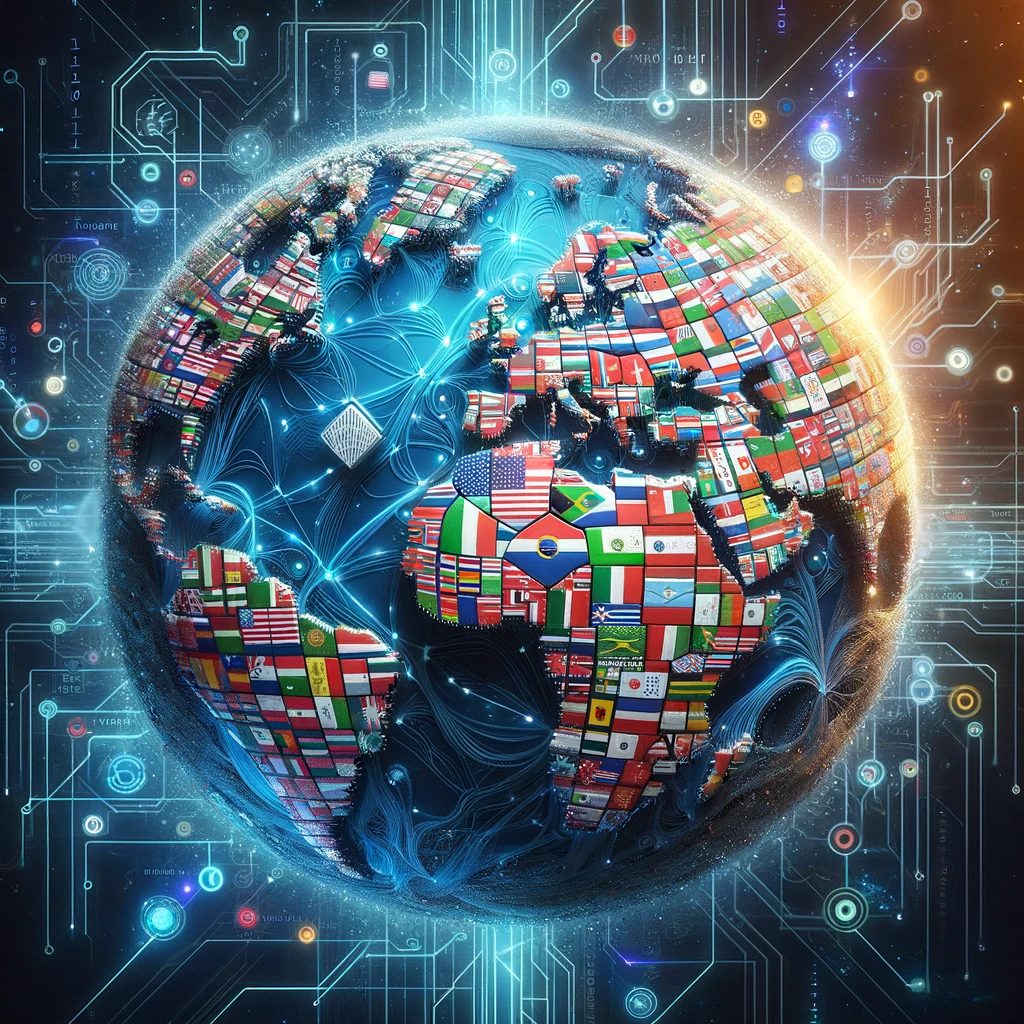AI Crossroads: The Global Race for Supremacy and the Future of Humanity
In the ever-evolving landscape of artificial intelligence (AI), a fierce competition has emerged, pitting the United States, China, and Europe against one another in a race for supremacy. This contest is not merely about technological prowess but also about the shaping of future economies, societies, and the global order. The dynamics of this competition are complex, with each player bringing unique strengths, strategies, and philosophies to the table.
The United States: Innovation and Leadership
The United States has long been at the forefront of AI innovation, fueled by its robust ecosystem of tech giants like Google, Amazon, and Microsoft. These companies have not only pushed the boundaries of AI research but have also successfully commercialized AI technologies, integrating them into the fabric of daily life. The U.S. government, recognizing the strategic importance of AI, has initiated various programs to support research and development, ensuring the nation remains a leader in the AI domain.
However, challenges remain. Issues of privacy, ethics, and the potential for job displacement have sparked debates. Moreover, the U.S. faces stiff competition from global rivals keen on dethroning its supremacy in AI.
China: Ambitious Plans and Rapid Growth
China has made no secret of its ambition to become the world leader in AI by 2030. With the full backing of its government, China has launched comprehensive initiatives to achieve this goal, combining substantial state funding with aggressive policy support. Chinese tech giants like Alibaba, Tencent, and Baidu are spearheading this charge, investing heavily in AI research and development.
China’s approach to AI is characterized by its focus on application and commercialization. The nation has rapidly deployed AI technologies in various sectors, from smart cities and surveillance to healthcare and education. However, its rapid advancement has raised concerns internationally about surveillance, data privacy, and the ethical use of AI.

Europe: Ethical AI and Regulation
Europe has taken a distinct path in the global AI race, emphasizing the ethical use of AI and the protection of individual rights. The European Union has been a pioneer in regulating AI, with initiatives like the General Data Protection Regulation (GDPR) setting global standards for data privacy. Europe’s approach aims to create a “human-centric” AI that serves society’s needs while safeguarding individual freedoms.
Despite these noble intentions, Europe faces challenges in competing with the sheer scale and speed of investment seen in the U.S. and China. Critics argue that excessive regulation may hinder innovation and leave Europe lagging behind its rivals in the AI arena.
The Global Impact and Future Prospects
The AI race is not just a competition among nations but a global endeavor that will shape the future of humanity. It has the potential to revolutionize industries, solve complex societal problems, and improve the quality of life for millions. However, it also raises profound questions about ethics, privacy, and the potential for AI to exacerbate inequalities.
As the United States, China, and Europe continue their pursuit of AI supremacy, the world watches closely. The outcomes of this competition will have far-reaching implications, not only for the winners and losers but for the global community. Will there be a convergence towards a common set of ethical standards, or will the world see a fragmentation of the digital space along geopolitical lines?
The AI supremacy battle is more than a technological race; it is a reflection of differing visions for the future of our world. Whether through cooperation or competition, the decisions made today by these AI powerhouses will pave the way for the society of tomorrow.
The AI arms race
The AI arms race is not only defined by advancements in civilian sectors but also by significant developments in military applications, cyber security, and geopolitical strategies. This aspect of the competition adds layers of complexity and urgency to the global race for AI supremacy.
Military Applications and Security
The United States Department of Defense has launched initiatives like the Joint Artificial Intelligence Center (JAIC) to integrate AI capabilities across the armed forces. Projects span from predictive maintenance of equipment to autonomous drones and AI-driven intelligence analysis. The U.S. aims not only to enhance its military effectiveness but also to maintain a strategic advantage over adversaries.
China’s military strategy, outlined in its “Military-Civil Fusion” development strategy, blurs the lines between civilian and military sectors. AI developments are leveraged to advance China’s military modernization efforts, with investments in autonomous vehicles, facial recognition technologies for surveillance, and AI-powered decision-making systems. China’s rapid progress in these areas is viewed with concern by other global powers, prompting discussions on AI use in warfare and international security.
Europe, while more cautious in the militarization of AI, participates in the arms race through initiatives like the European Defence Fund, which supports collaborative defense research and development, including AI projects. European nations are also individually exploring AI’s military applications, balancing between operational advantages and ethical commitments.

The Geopolitical Dimension
The AI arms race extends beyond national borders, influencing international alliances, trade, and diplomatic relations. The U.S. and China, in particular, have found themselves in a strategic competition, with AI at its core. This competition affects not just bilateral relations but also the tech supply chain, access to talent, and international standards for AI.
Europe seeks to navigate these tensions by asserting its stance on ethical AI and striving for digital sovereignty. It aims to be a balancing force, advocating for international norms that reflect democratic values and human rights.
Cybersecurity and AI
As AI technologies become more integrated into national infrastructure, cybersecurity emerges as a critical battleground. The U.S., China, and Europe are heavily investing in AI to both strengthen their cyber defenses and develop offensive capabilities. AI algorithms can detect and respond to cyber threats faster than human operators, but they also enable more sophisticated cyberattacks.
Research and Collaboration vs. Competition
Despite the competitive undertones, there is a recognition of the need for global collaboration in AI research, especially on issues like ethics, governance, and the mitigation of risks associated with advanced AI technologies. International forums and organizations are working towards common guidelines and standards to ensure AI is developed and used responsibly.
However, the balance between competition and collaboration is delicate. National security concerns, economic competitiveness, and strategic advantages continue to drive countries towards an AI arms race, even as they acknowledge the importance of cooperation in addressing global challenges posed by AI.
The Path Forward
As the AI arms race unfolds, it’s clear that its implications extend far beyond technology. It challenges global leaders, policymakers, and technologists to consider not just the advancements AI can bring but also the societal, ethical, and geopolitical impacts of these technologies. Finding common ground for cooperation, setting international standards, and ensuring AI benefits humanity as a whole are crucial challenges that need to be addressed in the pursuit of AI supremacy.
The future of the AI arms race, therefore, lies not only in technological innovation but also in the ability of nations to navigate these complex dynamics, fostering an environment where competition fuels progress without compromising global security, ethics, and human rights.








